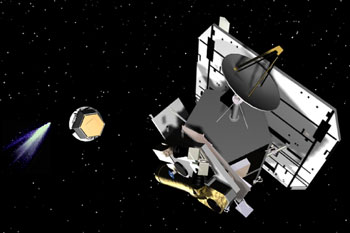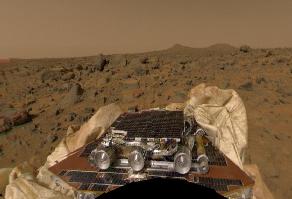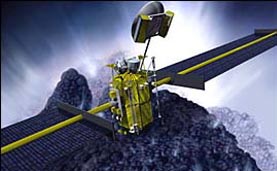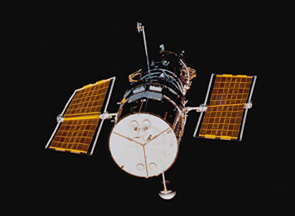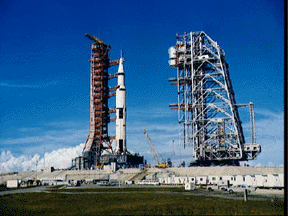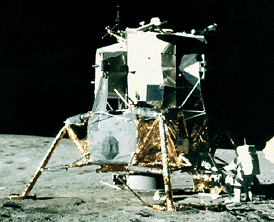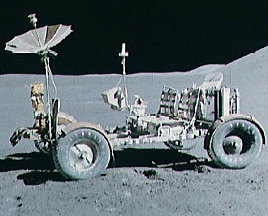Click on image for full size
Courtesy of NASA
Deep Impact Mission
NASA chose Deep Impact to be part of a special series called the Discovery Program on July 7, 1999. In May 2001, Deep Impact was given the "go" from NASA to start with mission development. Deep Impact already has a preliminary launch date of January 6, 2004.
The Deep Impact mission is simple; blast a hole in Comet Tempel 1 that is the size of a football field and is 7 stories deep! Deep Impact will consist of large spacecraft and an impactor. The 770 pound impactor will be released from the flyby spacecraft. Moving at speeds up to 22,300 MPH, the copper impactor will collide with the comet on July 4, 2005. Scientists can then study the core of the comet, the surface of the comet and the material that is blasted off of the comet from impact.
Ball Aerospace will build the spacecraft. Dr. Michael A'Hearn, at the University of Maryland, is the P.I. of the project and will lead the team of scientists and mission controllers at NASA's Jet Propulsion Laboratory who will run the project. The cost of this mission is estimated at $279 million.
"Deep Impact presents a special chance to do some truly unique science, and it is a direct complement to the other two comet missions already in the Discovery Program," said Dr. Weiler. These two missions are called Stardust and Comet Nucleus Tour (CONTOUR). Stardust will gather comet dust and bring it back to Earth, while CONTOUR will fly by three different comets. The Discovery program specializes in low-cost, scientific projects. There are currently six projects in the Discovery Program. Three of them have already completed their primary missions. Lunar Prospector has successfully mapped the Moon's composition and gravity field, Mars Pathfinder landed on the Red Planet and NEAR orbited Eros for a year ending with a successful landing in February 2001. Along with the Stardust and CONTOUR missions already mentioned, Genesis is the 6th Discovery program mission.
A similar project that would have landed a probe on Tempel 1 was scrapped by NASA because of a lack of funding.


